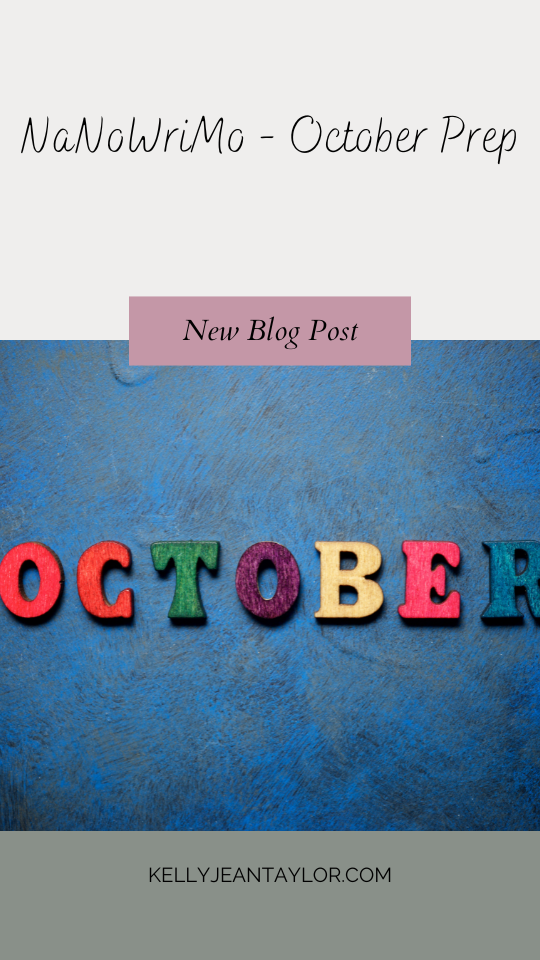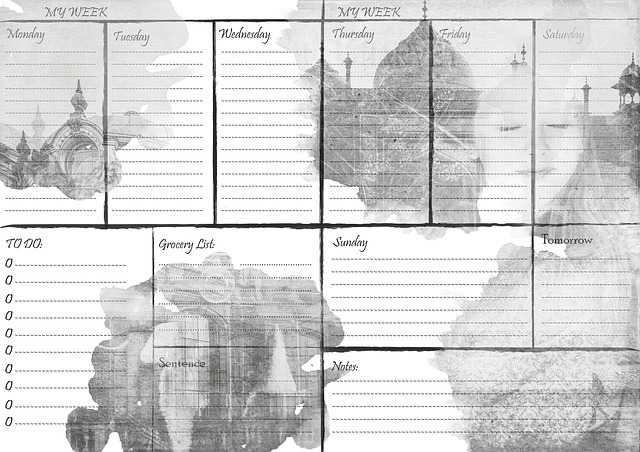
NaNoWriMo – October Prep
About NaNoWriMo
Nothing is more exciting than the spark of a great story, even better is the action you take to bring that spark to life durning NaNoWriMo.
NaNoWriMo is a great time to start your writing project. NaNoWriMo is run during the month of November when the race to complete 50,000 (1667/day) words begins. October and sometimes September is dedicated to prep and organization of your NaNoWriMo project.
The great thing is, is there are wonderful resources on the NaNoWriMo website as well as any NaNoWriMo writing groups across social media platforms. It’s always better when you have a group to discuss and get ideas from.
Prepping for NaNoWriMo
Prepping for NaNoWriMo can take just as much time as the month long NaNoWriMo event itself. If you’re a planner that is. Deciding on the project and intricate pieces can take some time to discover and organize. We’re here to make that a little easier for you. So, let’s get started.
Project
This is an overall look at your project. Why kind or type you going to do? Is it going to be fiction or non-fiction? Yes, it can be either. It’s 50,000 words, its not discriminatory between types.
So, here are some things to keep in mind when thinking about your project: Genre/subject matter? Tentative title? A summary of your project? Dummy cover (This will be a placeholder on the NaNoWriMo site until you get your cover complete.) You can create the cover or choose from something they provide, the choice is yours.
If you haven’t done so yet, you should set up and start your NaNoWriMo profile on the site.
Your Why and Your Goals
Think about your ‘Why’. Why do you want to complete this project? Why are you going through with this month long adventure? Keeping your why visible and close as you go on this journey will help keep you motivated and inspired.
Here you can set your goals for your project. It doesn’t just have to be a word count or even the usual word count done by most. If 50,000 words seems to intimidating, start with 25,000. Or if you’re ambitious, your word count could be more than the usual 50,000.
Maybe your goal is to just get a basic outline, finish a chapter, or edit a current project. NaNo may be for writing 50,000 words, but many have used it for other goals and the support they get is phenomenal. Decide your goals, write them down and create steps to complete those goals. What weekly and daily goals could you complete to get to the main goal?
Buddies
The NaNoWriMo Site allows you to add buddies and join groups to stay connected, motivated, encouraged, and ask questions. Forums and relational groups with a leader that’s there to answer your questions and give advice when needed. Some are even able to get together in person for writing time and sprints.
Go onto any social media channel and you can find NaNoWriMo specific groups to join for more connection. Looking for a group that focuses on horror, romance or comedy? There are groups out there for your specific genre who will do their own sprints, challenges, prompts, and more to make it fun. Do a quick search to find one for you your project.
Community/Resources
NaNoWriMo provides forums and resources within their menu items for more help and connection. They also provide discounts for software such as Scrivener for writing, ProWriting Aid for editing and cleaning up your novel, and so much more. Check it out Here!
Your Project
Now we will dive further into your project and get some more information for your to get started with your project.
Story Project
Your story or project here is where you can flesh out the specific a bit more. In the case of fiction, you would want to focus on characters (protagonist, antagonist, and secondary), setting, your outline, research (do as much as you need, but don’t get to sucked in that you forget to do the rest of the planning), and inspiration.
In the case of non-fiction, you would want to plan an outline, your chapter subjects, points in each section, quotes and citations, and more.
Get your thoughts down in an organized manner and keep it handy while you go through Nano, you’ll be glad you did. I promise.
One little piece of advice… don’t freak out when things don’t go the way you want. Characters have a mind of their own, some resources don’t work out or you get writer’s block. Move on with what you know and come back when you can.
Weekly Plan
Below we will outline a weekly plan for the month of October to get ready for NaNoWriMo in November (this will work for any CampNaNo event as well!)
Each week will have two focuses, one for your project and one for you/your atmosphere (office). So, let’s go.
Week One: Gather Your Thoughts and Ideas
This week is all about beginning. Getting your thoughts and ideas going and started. It’s the best time of the planning process because it’s new and everyone loves the new.
Project:
This is where you set up your novel. Hopefully when you start this, you have an idea of what your project is going to be about. Whether you are going to write fiction or non-fiction, you should have a subject or genre of where your project centers. Once you have that, move on to the basics of your project: Setting, Characters, Problem, and your projects world.
For a non-fiction project you would start with things like, your main subject and sub-topics, your market, the benefits, and the problem.
Checklist:
- Register your project on NaNoWriMo.org
- Join a region/forum/groups
- Write down your ‘Why’
- Where does your story take place?/ What is your main topic?
- Who are the main characters (antagonist/protagonist) and secondary characters? (Just names will be fine here at first, we’ll work on fleshing them out later)/Who is your market?
- What is the problem your character is trying to solve?/ or you?
- Give a description of your story world, is it based in reality or a fantasy location, jot down some rules and regulations for your world. / What are the benefits of your non-fiction project for your readers?
Atmosphere:
Here you will begin your set up for your atmosphere and I say atmosphere because this place may not be your office or you may move from one place to another during this event. Let’s get started, you want to set things up to keep you going and give you motivation and encouragement. Things to think about are when you can write, what your goals are, what programs to use and accountability.
Checklist:
- Set up your writing schedule (put it in your calendar(s))
- Write down your goals for your project.
- Keep track of your word counts
- Decide what programs you’ll use to write your project in (word, google docs, pages, or another program)
- Where will you save your project?
- Find an accountability partner/group.
- Find/print/purchase/gather inspirational/motivational items.
Week Two: Prepare for Failure
Don’t worry, you are NOT going to fail, but that doesn’t mean you can’t plan ahead and get ready for those times when you need a little encouragement or to dig yourself out of writer’s block. Though you will not be failing, your character will be, so let’s get some things down for your character’s failures. For those doing non-fiction, what are some things your readers are experiencing or failing at that your book will be helping with?
Project:
Fiction Writers: Your characters will go through many trials and attempts for fix the problem set before them. In what ways do they fail to keep your story going through to the end?
Checklist:
- Do they ever make the situation worse throughout their attempt to make things write? If so, what do they do to make things worse?
- Often times the problem the character thinks they are trying to solve (but failing at) is not the real problem they are facing, what is the real problem?
- What causes them to get to that bottom of the whole place where all they can do now is go up?
Atmosphere:
Your writing station may move from your office to the cafe down the street or perhaps to a completely new place that will give you the spark you need for your story. This is when you prepare for when you need a change of scenery or breaks.
You know your space best and how you work, to get the most functionality from your chosen areas, it’s a good idea to prepare beforehand for the chance of moving your workspace to another area temporarily.
You’ll also be setting your area up to give you the best chance at being successful. Clean, organize, gather and position encouraging and inspiring materials. Do what you need to get ready for the long journey ahead, that includes planning food and having healthy snacks and drinks handy for when you need them.
For Away Checklist:
- Make a list of things you’ll need when moving from one place to another – adding things from the home checklist that also applies here.
- Pack what you can so that you are ready
- Check your list for the things you can’t pack right away to make sure you have everything before you leave.
For Home Checklist:
- Make a meal plan which includes snacks and drinks to keep you healthy and hydrated.
- Pinterest storyboard of inspiration
- Notebooks, pens, pencils, colors (whatever you love to write down and organize notes)
- Laptop/Tablet
- Flashdrives
- Chargers/Battery Packs
- Your Favorites (Your favorite blanket or sweater if you get cold, your favorite mug, your favorite pen, etc)
- Anything else you feel you need to set up.
Week Three: The End is In Sight
Now that we’ve gotten from the beginning to the middle of your story with your characters and problems, you are now ready to think about how the story/book is going to end.
Project:
Your character’s have gone through the tough times, loved, lost, had their lives scared out of them, now your character realizes just what they have to do to fix the problem, so what is it? Even a general idea is better than nothing…
Checklist:
- How is the problem finally solved?
- How will the protagonist defeat the antagonist?
- What have they learned?
- How has the protagonist changed?
- How do you feel about that ending?
Atmosphere:
Here we are going to solve a problem for you and that is self-care during NaNoWriMo. Many jump in not thinking about how the schedule of writing 1,667 words a day will affect them. They stay up later, get up earlier, skip lunch to get the words in, but we are not going to encourage that. You may decide to do one or all of those things, but want you to take care of yourself during this time so here are some things to think about and schedule in.
Checklist:
- Plan for enough sleep
- Exercise – even if it’s a few small things to keep you moving, something is always better than nothing.
- Plan meals and snacks – again this is important, so do it!
- Keep items close that will keep your becoming frustrated – stress ball, candles, music, etc
- Keep your mindset free from distraction and frustration – find exercises to get you back on track (reread a section to get you back into the story, find writing prompts you want to include, keep image inspiration handy, etc)
- Eliminate or reduce distractions (you won’t be able to eliminate all distractions, buy you can do things to reduce them – talk to loved ones, turn off notifications, use apps to keep you from social media, etc)
Get these things in place so you have a successful journey!
Week 4: Dig Deeper
This week you will dig deeper into all the things you need to get information for. Research different aspects and items, find the right descriptions and more.
Project:
Your project needs more information on characters, settings, occupation, creatures and more. For non-fiction writers, here is where you would research what you need for your topics, citations, and more. This is the time to research those items.
Checklist:
- Settings
- Occupations
- Government Rules and Regulations
- Creature attributes
- Human behaviors
- Names
- Backstories
- World-building
- Habits
- Flaws
- Family
This list could go on, think of what you need for your project, take some notes and get your research done for the things you need. Have fun and learn new things!!
Atmosphere:
Here you’ll research things to keep you on track for a successful NaNoWriMo experience.
Checklist:
- Prompts
- Writer’s block exercises
- Refocusing Exercises
- Any Inspirational items you still need
Final Days: Finishing Up

These final days, you can use as you wish. If you still need time to research or flesh out specific aspects of your project, use these day for that. If you feel you have everything in place and are ready to go, use this time to relax and get yourself ready for the journey ahead.
You are about to embark on a fantastic journey, whether it is your first or fiftieth time joining authors from all around for NaNoWriMo, it’s gonna be great!





